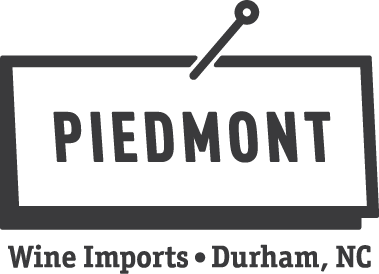olive oil
Caparsa Extra Virgin Olive Oil
Who: Paolo Cianferoni
Where: Radda in Chianti (Tuscany, Italy)
500 ml
Cold Pressed
”This Oil is very fruity, made from organic methods, to use raw with salad, tomato, mozzarella, soup, bread, meat, souce... Don't use for cooking! “ -Paolo
This perfect, delicately spicy oil is already upping my polyphenols, and making my tomato salads legendary. Some things we do for love, others for the love of money. Importing this brings me joy, and hopefully long(er) life. — JM
Piccinin Gecchele Olive Oil
Who: Daniele and Camilla Piccinin
Where: Lessinia, Verona (Veneto, Italy)
500 ml
Olives: Grignano, Leccio del Corno, Leccino, Frantoio.
According to Camilla, it takes 100kg of olives to make 10 liters of oil. Her father Severino started this endeavor twelve years ago. Her brother Mattia and husband Daniele are carrying it forward. They harvest older tress, and pick/process the oil quickly, because oxygen is the enemy of olive oil. By working carefully and swiftly, they preserve the precious polyphenolic properties of this exceptional oil.
Corzano e Paterno Olive Oil
Who: Arianna Gelpke and Aljoscha Goldschmidt
Where: Frazione San Pancrazio, north of Poggibonsi, west of Greve (Tuscany, Italy)
500 ml
Olives: Moraiolo ( single cultivar )
Crushing is done with metal knives. The paste is malaxed (mixed) in vertical mixers under vacuum, to reduce its oxidation as much as possible. Oil is then extracted by a decanter that enables us to avoid adding water at any point during the process. The paste enters the decanter at 23° C. Obtained oil is then not passed through the usual separator but is immediately filtered. Before being bottled the oil is held in stainless steel protected by inert gas (Argon).
Olive Oil is always a fleeting treat in our lives. The spiciest by far of the small-farm oils that we import, this product can be the secret to success in so many simple meals. Harvests are always small. It’s a labor of love, and a food product that underscores the dramatic difference in quality between real Tuscan olive oil, and grocery store facsimiles. — JM
Torre Dei Beati Extra Virgin Olive Oil
Who: Fausto Albanesi
Where: Loreto Aprutino (Abruzzo, Italy)
500 ml
Olive oil is the thing we import that really excites me these days. The jarring difference between the real thing and the supermarket simulacra is almost unbearable. This olive oil was harvested between September 26th and October 3rd. In Fausto’s words, “incredible, if you think that in the past the normal time for the olive harvest was the end of October/November. Earlier harvest means fresher flavours, also exalted by the low process temperature, and the very short kneading time. The side effect of this is a drastic reduction of the oil percentage you obtain. Yield is now around 9% in weight (it was traditionally between 15-18, and even 20% sometimes). But you already know about our masochism.” Please try one of these scant bottles. Meals will be improved.
Annesanti Extra Virgin Olive Oil
Who: Francesco Annesanti
Where: Arrone, Valnerina (Umbria, Italy)
500ml
Olives: Moraiolo olives, grown at 300-600m above sea level.
Keen Italian food lovers will be aware of a growing crisis in olive oil supply. Harvests across the peninsula are drifting downward in quantity. Fragrant, spicy, bitter, herbal oils like this one are a gift. We’re grateful to receive a small quantity, and will be siphoning off bottles for home use.
Pietralta Extra Virgin Olive Oil
Who: Pierfranca Lattuada and Stefano Lattuada
Where: Gambassi Terme, close to San Gimignano (Tuscany, Italy)
500ml






